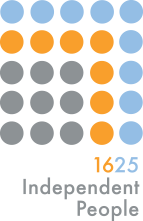Future 4 Me – The Team
F4M aimed to ensure that young people receive support in a “psychologically informed environment” (PIE), through an integrated multi-disciplinary team offer. The specialisms within the multi-disciplinary team enabled us to more effectively triage those young people with complex needs, and then to offer them support tailored to their primary area of need.
The identified specialisms within the team were Mental Health, Resettlement, Work and Learning and Participation. In addition to these specialisms, staff were recruited based on their ability to bring excellent engagement skills, and a commitment to multi-agency working. The team worked to ensure that every young person had a “trusted adult” who offered; belief and encouragement to achieve; improved access to positive activities; and access to suitable accommodation, all through intensive support from a multi-disciplinary team. View Team Map.
It was also about establishing strategic and operational support for the transition from custody to community, and from care to independent living working closely with education, learning support, mental health and other services to ensure that key information also made the transition along with the young person.
Why an integrated multi-disciplinary team?
Through the integration of these roles, we intended to impact 1625ip’s culture and colleagues’ skills:
- To provide a more responsive, less reactive service to young people with learning difficulties and mental health needs.
- To promote a culture of reflection and analysis within our organisation and partnership.
F4M also sought to
- Improve services for the most vulnerable young people – joining up services and improving outcomes for young people leaving custody and local authority care.
- Ensure that the most vulnerable young people receive all round integrated support that addresses all aspects of their lives.
- Develop colleagues’ skills by introducing specialist learning support and mental health workers into 1625ip alongside specialist training across wider partnerships.
What we did
As an integrated team, F4M engaged with young people in custody and care, and those who have left custody/care but were struggling with the transition. Project workers developed trust and worked with young people and our partners to develop individual plans so young people could access:
- Supported housing.
- Support for learning difficulties, literacy, communication needs.
- Positive activities including sports, arts, outdoor, leisure opportunities, mentoring and volunteering.
- Training, education and employment.
- Health and wellbeing services.
Referrals into the service were made primarily by social services, Youth Offending Teams (YOTs) and probation. Young people received 6-12 months of 1:1 support from a named project worker in phase 2 of Future 4 Me. Part of this support would be helping the young person to connect with other ongoing sources of support for the future. Care was taken at the assessment and referral stage to match young people with a keyworker with a relevant specialism and with the ability to travel to their area to meet with them.
Through team case reviews and clinical supervision, the project workers gradually built up increased understanding of one another’s specialisms and became more confident in using a range of psychologically informed tools and approaches. This led to a team which was well integrated, and was constantly reviewing and improving practice.
